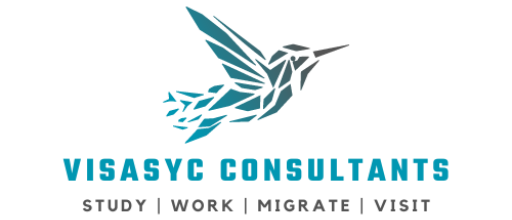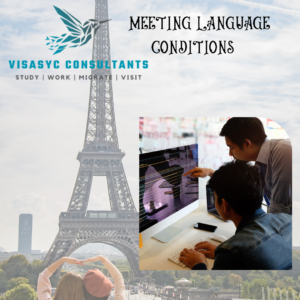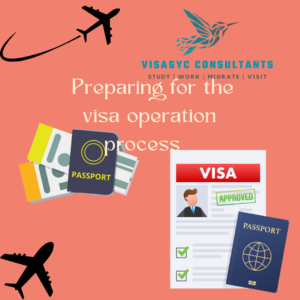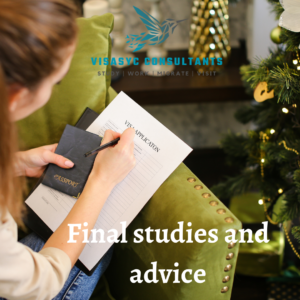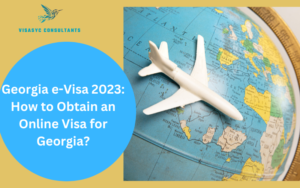Language– Ready Scholar My Path to a French Student Visa
Getting a French Student Visa is no small feat, and I know because I’ve been through the process myself! After months of studying French, I was eventually suitable to achieve my thing of getting a language-ready scholar and carrying a visa to study in France. In this blog post, I will partake my story and give advice for anyone differently hoping to make their dream of studying abroad in France a reality.
1. The decision to study in France
Deciding to study in France was a life- changing decision for me. It all started when I realised my passion for the French language and culture. I had been studying French in academy for several times and had fallen in love with everything about it. The way the language rolled off the lingo, the rich history and literature, and the art and armature charmed me. I knew that if I wanted to truly immerse myself in the French language and experience all that France had to offer, studying abroad was the way to go. Making the decision to study in France was not easy.
There were numerous factors to consider, similar as the cost, the distance from home, and the implicit challenges of living in a foreign country. still, I was determined to overcome any obstacles that came my way. I knew that studying in France would not only enhance my language chops but also give me with a unique artistic experience and open doors to new openings. getting a language-ready scholar meant that I was ready to take on the challenges and immerse myself completely in the language and culture.
It meant stepping out of my comfort zone and embracing the unknown. The decision to study in France wasn’t one that I made smoothly, but I knew deep down that it was the right choice for me. In the coming section, I’ll bandy how I delved universities and programs in France to find the stylish fit for my pretensions and bournes .
2. Probing universities and programs
When it came to probing universities and programs in France, I knew I had to be thorough. After all, chancing the right fit for my pretensions and bournes was pivotal to making my study abroad witness a success. So, I dove headfirst into the world of university websites, online forums, and particular witnesses. My first step was to identify the universities in France that offered programs in my field of study. I trolled the internet for rankings, character, and pupil reviews to constrict down my options. I wanted to insure that I would be attending a university that had a strong academic program and a probative community for transnational scholars.
Once I had a list of implicit universities, I excavated deeper into probing their individual programs. I looked into course immolations, faculty moxie, and adulterous conditioning. I wanted to make sure that I would have access to a variety of courses and openings that aligned with my academic and particular interests. In addition to academic factors, I also considered the position and culture of each university. I wanted to study in a megacity that would give a rich artistic experience and allow me to completely immerse myself in the French way of life.
So, I looked for universities located in vibrant metropolises with a strong pupil community and plenitude of artistic events. Eventually, my exploration paid off, and I set up a university that checked all the boxes. The lot was beautiful, the program offered a wide range of courses, and the megacity had a lively pupil scene. It was the perfect fit for me as a Ready Scholar looking to embark on a life- changing study abroad adventure. In the coming section, I’ll bandy how I met the language conditions to be accepted into my chosen program.
3. Meeting language conditions
Meeting the language conditions for my chosen program was a pivotal step in my trip to carrying a French pupil visa. As a language-ready scholar, I knew that my proficiency in French would be put to the test, and I was determined to prove that I was over to the challenge. To insure that I met the language conditions, I enrolled in fresh French language courses and sought out openings to exercise speaking and writing in French. I attended discussion groups, shared in language exchange programs, and indeed hired a instructor to help me ameliorate my language chops.
In addition to honing my language capacities, I also had to give evidence of my proficiency. This generally involved taking a standardised language test, similar as the DELF or the TCF, which are extensively honoured by French universities and immigration authorities. These tests assess your speaking, harkening, reading, and jotting chops, and carrying a certain score is frequently a demand for admission. Preparing for the language test was no easy task. I devoted innumerous hours to studying vocabulary, alphabet, and practice examinations.
I also sought feedback from my language preceptors to identify areas for enhancement and develop strategies to strengthen my sins. Eventually, my hard work paid off, and I was suitable to meet the language conditions for my chosen program. It was a proud moment for me, knowing that I had successfully demonstrated my language proficiency and was one step closer to realising my dream of studying in France. In the coming section, I’ll bandy how I prepared for the visa operation process and navigated the complex conditions.
4. Preparing for the visa operation process
Preparing for the visa operation process is a pivotal step on the path to carrying a French pupil visa. It can be a complex and daunting process, but with the right medication and association, it’s surely attainable. First and foremost, it’s important to gather all the necessary documents and information. This generally includes your passport, acceptance letter from the university, evidence of fiscal means, evidence of accommodation, and evidence of medical insurance. Make sure to check the specific conditions of the French consulate or delegacy in your country, as they may have fresh conditions or specific forms that need to be filled out.
Once you have gathered all the necessary documents, it’s time to start the operation process. This generally involves filling out an online operation form and cataloguing an appointment at the consulate or delegacy. It’s important to do this well in advance, as appointment places can fill up snappily. During the operation process, be prepared to give fresh supporting documents if requested. This may include evidence of language proficiency, reiterations, or fresh fiscal documents. It’s important to keep all your documents organised and readily accessible. In addition to gathering the needed documents, it’s also a good idea to familiarise yourself with the visa interview process.
Research common interview questions and exercise your answers in advance. This will help you feel more confident and set on the day of your interview. Eventually, be patient throughout the process. Visa operations can take time, so it’s important to start the process beforehand and allow yourself plenitude of time for any unlooked-for detainments. Stay systematised, keep track of important dates and deadlines, and follow up with the consulate or delegacy if necessary. Preparing for the visa operation process can be a bit inviting, but with careful planning and medication, you can navigate the process successfully and make your dream of studying in France a reality.
5. Tips for a successful pupil visa operation
Now that you’ve made the decision to study in France, conducted thorough exploration on universities and programs, and met the language conditions, it’s time to concentrate on the visa operation process. Then are some tips to help you navigate this pivotal step successfully
- Start beforehand. The visa operation process can take time, so it’s important to begin beforehand. This will give you enough time to gather all the necessary documents, fill out the operation form, and schedule an appointment at the consulate or delegacy.
- Be systematised Keep all your documents organised and readily accessible. produce a roster of the needed documents and double- check that you have everything before submitting your operation. This will help avoid any detainments or issues during the process.
- Familiarise yourself with the conditions Make sure you’re apprehensive of the specific conditions of the French consulate or delegacy in your country. This includes any fresh documents or forms that need to be filled out. Research and understand the visa interview process to feel more confident and set.
- Seek guidance if demanded If you are feeling overwhelmed or doubtful about any aspect of the visa operation process, do not vacillate to seek guidance. Reach out to your university’s transnational pupil office or communicate the consulate or delegacy for explanation or backing. They’re there to help you navigate this process.
- Stay patient and patient Visa operations can occasionally be time- consuming and frustrating, but it’s important to stay patient and patient. Keep track of important dates and deadlines, follow up with the consulate or delegacy if necessary, and do not get discouraged if there are any detainments. Stay systematised and stay concentrated on your thing.
By following these tips and staying organised and concentrated, you can increase your chances of a successful pupil visa operation. Good luck, and bon passage!
6. Final studies and advice
As I reflect on my trip to carrying a French pupil visa, I’ve a many final studies and advice to partake. First and foremost, believe in yourself and your capacities. Studying abroad is a gruelling and satisfying experience, and you have what it takes to succeed. Second, do not be hysterical to step out of your comfort zone and embrace the unknown. This is where particular growth happens. Incipiently, seek support and guidance whenever you need it. Whether it’s from musketeers, family, or counsels, having a strong support system will make all the difference. Bon passage!
Conclusion
As I wrap up my story of getting a language-ready scholar and carrying a French pupil visa, I want to emphasise that this trip isn’t easy, but it’s incredibly satisfying. Studying abroad in France has been a life- changing experience for me, and I encourage anyone with a passion for language and culture to pursue their dream of studying abroad. It may bear hard work, determination, and prostrating obstacles, but the end result is worth it. So, go out there, believe in yourself, and make your dream of studying in France a reality. Bon passage!
Also Read : Visa Application Odyssey: A Dream of Exploration and Learning
Also Read : How to Get 1K Views On YouTube Fast?
